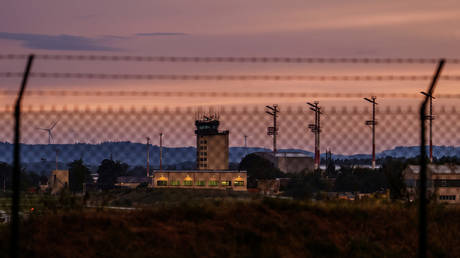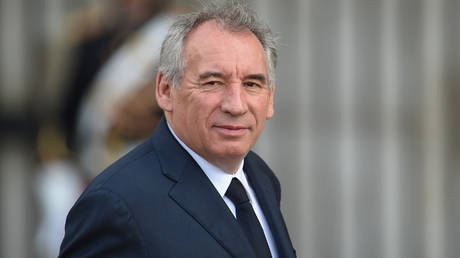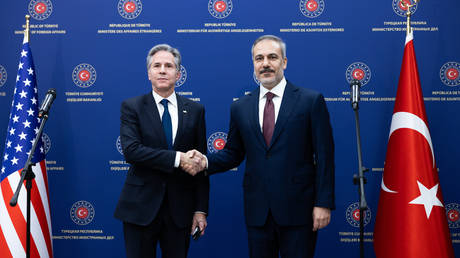Last year, tuberculosis (TB) returned to being the world’s leading infectious disease killer, surpassing COVID-19. Contagious and airborne, TB was also the leading killer of people with HIV and a major cause of deaths related to antimicrobial resistance. Notably, last year saw 8.2 million people worldwide newly diagnosed with TB, the highest number recorded since the World Health Organization began monitoring in 1995. While TB impacts people worldwide, eight developing countries – India, Indonesia, China, the Philippines, Pakistan, Nigeria, Bangladesh, and the Democratic Republic of the Congo – accounted for more than two thirds of the global total.
Although frequently overlooked and notwithstanding a number of challenges, over the decades Eritrea has quietly made important strides in combating TB. At present, the country’s TB-related figures and progress are not only among the best in the surrounding region, they also compare quite favorably with continental and global figures. For instance, according to data from the WHO, Eritrea registered a TB incidence rate of about 65 per 100,000 population last year, much improved from decades past (in 2000 it was about nearly 180) and recent years (it was about 80 in 2020). By comparison, the global TB incidence rate is estimated to have increased by nearly 5 percent between 2020 and 2023. What is more, the national cure rate for TB has increased impressively, hovering at around 90 percent in recent years. Notably, this is higher than the global recommendation from the WHO.
As with its progress in other areas of health, Eritrea’s success in combating TB cannot be attributed to any single factor. Instead, it is the result of a multi-pronged approach.
For one, the country’s national health policy aims to maximize the health and well-being of citizens at all ages and seeks to ensure equity and access to essential health services at an affordable cost. All individuals that have TB (or a number of other diseases and disorders) are provided with free continuous care and quality treatments by the Ministry of Health (MoH). In addition to serving as a powerful reflection of Eritrea’s longstanding commitment to social justice and equality, this is critical to ensuring that TB patients (and their families) are not burdened by catastrophic financial costs as a result of the disease – something which is all too common in many countries across the globe. (Empirical work and international organizations suggest that due to TB, people face costs or suffer income loss equivalent on average to more than 50 percent of their income.)
Another important factor in Eritrea’s positive strides has been the fact that it has maintained a firm focus on prevention, diagnosis, and treatment. Prevention is important because it helps to stop people with TB infection from becoming sick, averts suffering, and saves lives. Through TB preventive treatment, not only are Eritreans protected from becoming sick, the risk of transmission in the community is significantly reduced. (Globally, it is estimated that people with active TB can infect anywhere from 5 to 15 other people through close contact over the course of a year.)
Furthermore, public campaigns and community awareness initiatives, which are regularly conducted in all parts of the country, raise general understanding and reduce misconceptions, ultimately helping ensure that people with TB symptoms know how and where to seek appropriate help. Meanwhile, efforts to improve early detection of TB have also been intensified, including through the training of village health workers nationwide. Ensuring that people are quickly and correctly diagnosed can allow them to get started on the most effective treatment regimen as early as possible.
Eritrea’s progress against TB has also been driven by the country’s relentless efforts to address several of the main risk factors or conditions that can impair the immune system, such as HIV, malnutrition, and undernutrition. Importantly, efforts to combat HIV go closely hand in hand with the fight against TB since HIV and TB form a lethal combination, each speeding the other’s progress. Worldwide, people living with HIV are approximately 18 times more likely to develop active TB disease than people without HIV. Last year, of the estimated 10.8 million people who fell ill with TB worldwide, people living with HIV accounted for about 6.1 percent of the total.
In Eritrea, as a result of the sustained implementation of high-impact interventions and a well-coordinated, comprehensive approach, notable success has been achieved in halting the spread of HIV and sustaining a steady decline in prevalence and incidence. Based on recent estimates from UNAIDS, HIV prevalence among adults (aged 15-49 years) in Eritrea is now approximately 0.36 percent, down from about 1.5 percent at independence in 1991. In terms of incidence, it has declined from about 3.9 per 1,000 uninfected population (adults aged 15-49 years) in 1991 to less than 0.1 at present.
Nutrition, too, has been important. In particular, malnutrition can increase the risk of TB and lead to delayed recovery and higher mortality rates. In this regard, Eritrea’s efforts to promote food and nutrition security, led by the Ministry of Agriculture, have been critical. As well, the country’s Health and Nutrition program, led by the MoH, in partnership with several longstanding international organizations and development partners, works to prevent and treat malnutrition and micronutrient deficiencies across different population groups and within various parts of the country.
Alongside all of the above, Eritrea has a high Bacillius Calmette-Guerin (BCG) vaccination coverage rate. Developed and introduced in the early decades of the 1900s by French bacteriologists Albert Calmette and Camille Guérin, BCG is considered the world’s most widely used vaccine. Although it offers limited protection against TB in adults, it helps to protect young children against severe forms of TB. (It is sometimes offered to adults who are at risk of TB, such as some healthcare workers.) Today, BCG is primarily administered in low- and middle-income countries as a simple, cost-effective intervention against TB.
In Eritrea, at birth (or within a few days of being born), almost all newborn children receive a dose of the BCG vaccine. Since 1998, the country’s BCG vaccination coverage, defined as the percentage of one-year-olds who have received one dose of BCG vaccine in a given year, has been extremely high, averaging about 97 percent – a figure that is much higher than both the global and SSA averages.
Overall, Eritrea has made important progress in the fight against TB. Sustained commitment and accelerated efforts will help to end the disease and ensure a healthier, safer, more equitable future for all.





+ There are no comments
Add yours